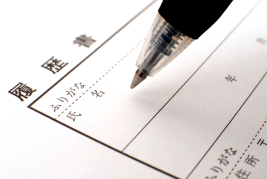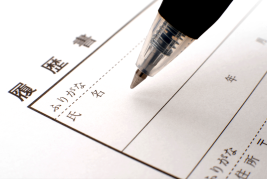When a foreigner finds a job in the land of the rising sun and begins to live there, there are some difficult situations that they might face, such as finding a place to live or applying for a visa. Among them opening a bank account too.
Therefore, in this article, we would like to introduce you how to open a bank account in Japan, the necessary documentation, recommended banks, etc.
There are cases where part-timers receive salaries by hand, but when working as a full-time employee (Seishain), it is common to transfer the salary to a bank account. In addition to receiving the salary, the payment of public services such as rent, the electricity bill, and the water bill is generally withdrawn from a bank account too. Also, depending on the bank where you have opened an account, some ATMs are able to send money abroad.
We hope this article will help those living in Japan to open a bank account that suits them better.
Contents
Conditions for Foreigners to Open Bank Accounts in Japan
When foreigners open a bank account in Japan, need a residence card “Zairyu-card” and residence certificate “Zyuminhyo“. If you are a foreigner whose visa expiration is less than 90 days such as tourist visa and your stay period is less than 90 days, you can’t obtain a residence card or a residence certificate. Therefore, if you have a residence period of less than 3 months and a residence card is not issued, you will not able to open a bank account in Japan.
Besides, people with a period of stay is fewer than 6 months are considered to be non-residents, so they can create non-resident yen deposit accounts “Hi-kyojusha-yen-yokin-kouza“, but cannot create normal saving accounts “Futsuu-yokin-kouza“ that can be remitted to foreign countries.
* Some banks, such as Japan Post Bank, may create a normal saving account even if the stay period is 3 months to less than 6 months.
Difference between “Hi-kyojusha-yen-yokin-kouza” and “Futsuu-yokin-kouza“
Different from normal saving accounts “Futsuu-yokin-kouza“, overseas remittances are restricted for non-resident Yen deposit accounts “Hi-kyojusha-yen-yokin-kouza“. Also, when you pay rent or pay the amount you used with a credit card, these payments are normally withdrawn from a normal saving account. Non-resident Yen deposit account can’t do that. Non-resident Yen deposit accounts have only the minimum functionality of depositing money and withdrawing money from ATMs.
What you need to open a Bank Account
A foreigner can legally open a bank account if he/she matches the requirements mentioned above.
From now on, we would like to introduce to you what is generally needed when applying to open a bank account in Japan.
Nevertheless, some banks ask for additional requirements, so be sure to confirm them before opening an account by yourself.
Documents Proving the Address
As a foreigner, you need to prove your permission to stay in Japan, so please bring your valid residence card and passport. Also, it is recommended to bring your health insurance card, special permanent resident certificate, driver’s license (if you have one), student ID, and employee ID just in case.
Address Confirmation
It is necessary to show your residence certificate “Zyuminhyo” or a utility bill (gas, electricity, water, NHK, landline, etc.) to demonstrate that you live at the address indicated in the documents presented.
※Generally, mobile phones, and smartphones invoices cannot be used as certificates.
Personal Seal (Inkan)
Inkan is one of the oldest cultures in Japan. In overseas, it’s common to write a signature by hand at important contracts, but in Japan, the use of seals is the most traditional way to do it than writing a signature.
Recently, some banks, such as Mitsubishi UFJ Bank and Resona Bank, have removed the seal from their requirements to open a bank account, but many banks still require a seal to open an account.
Since there are many cases where you need an Inkan not only when opening a bank account but also when signing an important contract like a housing contract, we recommend you should make your Inkan with Katakana or Alphabet.
Phone number that can be contacted
The bank will need a phone number to keep in touch with you. You can tell them your cell phone number.
Recommended Banks for Foreigners
We would like to introduce some recommended banks for foreigners who want to open a bank account in Japan. Apart from these, there are still many banks in Japan, but this time we will focus on some of the major banks in Japan.
Major banks in Japan tend to have ATMs across the country, which is very convenient for the consumer.
| Name of Bank | Reason for Recommendation | Bank’s Website |
|---|---|---|
| Japan Post Bank |
| Japan Post Bank |
| MUFG Bank |
| MUFG Bank |
| Mizuho Bank |
| Mizuho Bank |
| Resona Bank |
| Resona Bank |
In most cases, the homepage of each bank contains the documents necessary for opening an account, so if there is a bank of interest, please check the information on the homepage.
Conclusion
As mentioned above, in Japan, most payments such as salaries, rents, utility bills, etc. are made to or withdrawn from a bank account. Possession of a bank account is important for living in Japan, so check the website of the bank that you are interested in beforehand and prepare the necessary requirements in advance.










